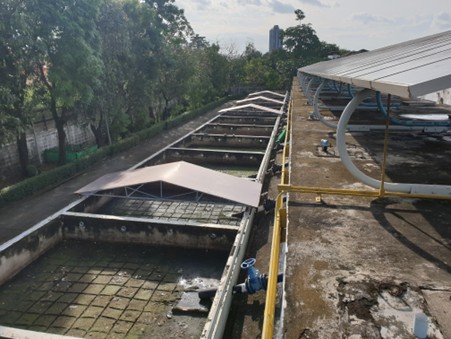Business model for FSM in Nonthaburi Municipality using Stella modelling (Thailand)

This research examines financial sustainability in Faecal Sludge Management (FSM) for Nonthaburi Municipality, Thailand, by developing and testing multiple business models using Stella modeling. The study identifies key inefficiencies within the current Integrated Collection, Transport, and Treatment Model, characterized by high operational costs and insufficient revenues from collection fees and bio-fertilizer sales. Financial analyses reveal substantial improvements through structured revenue streams such as sanitation taxes, discharge fees, and licensing mechanisms. The Parallel Tax and Discharge Fee Model notably achieves a high Return on Investment (ROI) of 266.4% with rapid capital recovery in approximately 0.375 months. The Dual Licensing and Sanitation Tax Model and the Incentivised Discharge Model also show promising results, offering lower operational expenditures, increased net profits, and significantly reduced payback periods, thus facilitating greater private sector engagement. The study underscores the importance of integrating robust revenue mechanisms and public-private partnerships (PPP) into FSM strategies. Policy recommendations highlight aligning FSM practices with existing regulatory frameworks, implementing flexible fee structures, and promoting private sector involvement to ensure economic sustainability.

